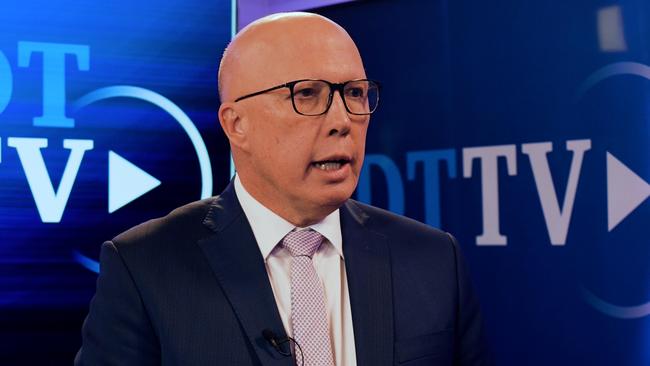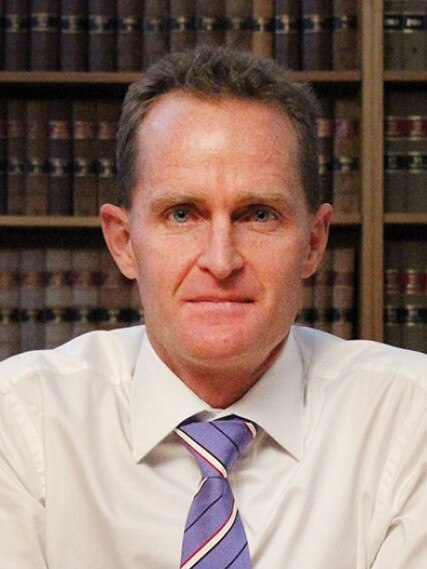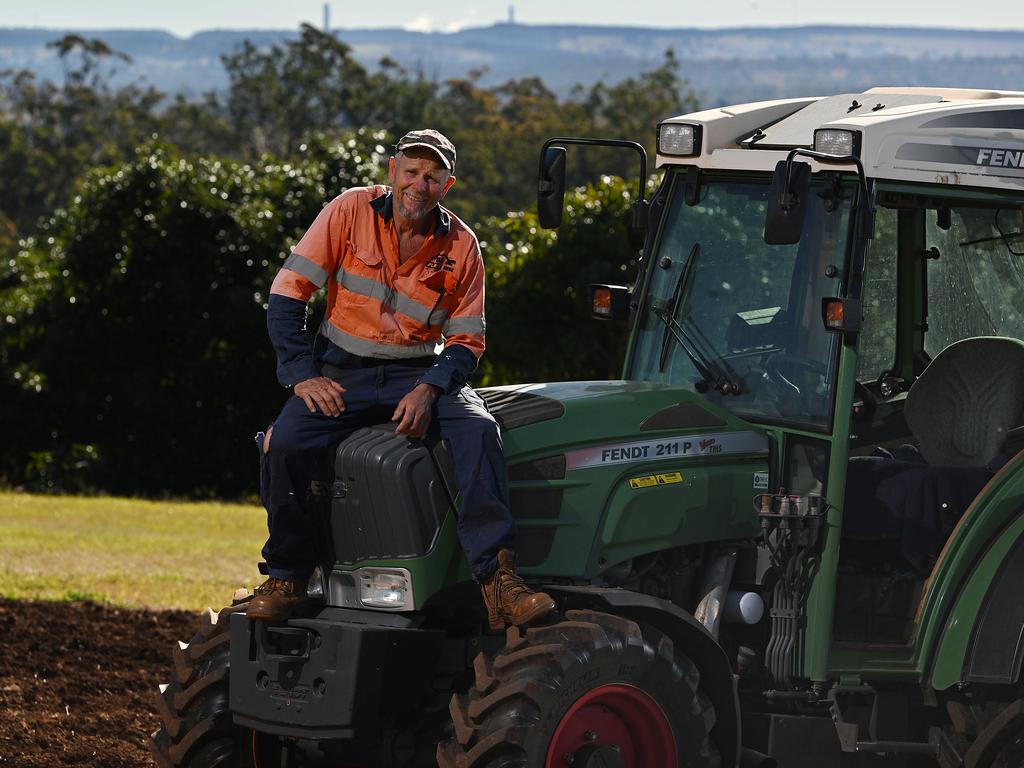Business is on the bus and wants Canberra to lead in clearing the hurdles to emission cuts


Big business has and is moving on. It is frankly fed up with talk and no action from Canberra, and on nuclear energy is asking what’s in it for business in a country already blessed with the world’s best renewable options but lacking the infrastructure.
That said, the risk is that given the lack of political leadership, some in businesses will move to the next green cycle – from green wishing, to greenwashing, to green hushing, to green chilling.
The politics is clear; linking climate to cost-of-living pressures is old school John Howard diversionary tactic, playing the “Australia is a small country” card so it won’t move the climate pendulum.
This is all an unwelcome diversion from the hard yards required for transmission upgrades for renewable emission-based reductions, removal of other barriers and – if we are talking moon shots – have we already forgotten hydrogen?
Thankfully, business appears to be ignoring Canberra; the $4bn Golden Plain wind farm project in Victoria took another step forward this week just as Opposition Leader Peter Dutton was floating his nuclear thought bubble.
In an interview with the Weekend Australian this week, Telstra environment chief Tom Penny made clear “consumer sentiment has changed a lot and is strongly in favour (of reductions)”.
“The economics and the business reasons for taking action now, certainly for us, far outweigh the need from a top-down, government perspective. It makes economic sense, financial sense and business sense for us,” he said.
The company has now increased its emissions reduction target from 50 to 70 per cent from 2019 levels, by 2030, to underline its commitment.
It makes you wonder what focus groups Peter Dutton is talking to when Telstra’s retail and business customers are cheering on its direct emission cuts.
Telstra is moving to direct action from its offsets program, which was largely centred in India in part because with Scope 3 emissions (created by third party customers outside Telstra’s direct control) it is easier to credit.
Penny rejects suggestions the move was prompted by concern about the integrity of the offsets it had invested in.

Offsets are not supported by hardline environmentalists, who would rather direct cuts, and ANU Professor Andrew Macintosh has raised doubts about the human-induced regeneration (HIR) method.
Prof Macintosh’s doubts were roundly rejected last year after a formal study by former chief scientist Professor Ian Chubb – and notably Macintosh is working with the Queensland government on a new offsets method crediting avoided land re-clearing (leaving new forests in place).
The ANU Professor and former offsets regulator clearly supports the concept and overall system.
Climate Minister Chris Bowen has come out swinging against Dutton’s nuclear thought bubble, but would do his cause some credit by fast forwarding implementation of his plans.
The Chubb committee handed its recommendations to Bowen in January last year and 18 months later the details are still 50 per cent short of full implementation, including key initiatives like a national data set detailing carbon projects, the details of the prior informed consent required from Indigenous communities, full transparency requirements and formal legislation for the new offsets integrity panel under Karen Hussey.
Telstra spends about $250m a year on electricity, mainly for cooling equipment, so better air conditioning and insulation will help save money and cut emissions.
About 10 per cent of its 6500 vehicle fleet is electric and this percentage will be ramped up, more offtake agreements will be signed for renewable energy, and its 8000 external sites will be powered more by solar, among other measures.
By law, companies with more than 250 staff and/or $500m in turnover must file climate statements in their accounts from July 2026, and those with over $25m from July 2027.
Sixty six of Australia’s top 100 companies and 78 in total are part of the global Science Based Target Initiative (SBTI) comprised of more than 5000 companies globally which voluntarily agree to target reductions well ahead of Canberra’s commitments.
To attract local and international investors, companies must show their commitments, and increasingly global supply chains will only be open to those which comply .
Organisations like Taskforce for Nature Related Financial Disclosure are taking the next step incorporating nature-based disclosure into accounts.
Corporate Australia is on the bus, its customers are showing them the direction, state and federal governments are cautiously on track, but the federal Opposition – after nine years of inaction when last in power in 2022 – sees merit in more delays.
Transparency a must
Amid the national crisis around housing shortages the ACCC is almost certain to further delay consideration of the planned $1bn-plus Stockland/Thailand-based Supalai purchase of 12 large greenfield sites from Lendlease.
The deal was announced last December, formally lodged with the ACCC in February, the investigation was delayed in April and restarted at the end of May with a July 4 finish date.
The expectation is there will be a statement of issues and a stage two investigation will begin.
This will tell us what concerns the regulator has, which is important especially given the ACCC will increase its gatekeeper powers if its new regimen passes parliament (whenever that may be).
Transparency is important, given alternate reads of both judicial and ACCC decisions.
Most thought the Competition Tribunal allowed the ANZ-Suncorp acquisition because the target bank was small in the scheme of things. But another read had concerns on just what Bendigo Bank would have done if it had the opportunity of owning the Queensland bank.
We are still waiting for the draft amendments, two months after the government backed most of the ACCC requests which were formally lodged in April last year.
The government changes do not come into force until January 2026, which will roughly be three years after the changes were formally requested.
Next week the doyen of competition economists, Philip Williams, will join the ACCC as chair of the mergers committee.
His predecessor, lawyer Stephen Ridgeway, will stay on the committee, the adjudication committee and the enforcement committee in his role as an associate commissioner.
Decisions pending include the ACCC hobby horse against private equity rollups in the EQT-owned Icon energy expansion of its radiation oncology empire which, along with the Brookfield-controlled Genesis healthcare, has about 90 per cent of the market.
The Chemist Warehouse deal, as noted, is in part concerned with the related party domination of the CW franchisee-franchisor relationship which got them around Pharmacy Guild-based regulations, but has clear competition issues and the aforementioned Stockland-Lend Lease deal.
As an aside, in 2023 CW had $2.5bn worth of related party transactions and notably familial ties that qualify as related by law, and only include parent, spouse or children.





The federal Opposition playing politics on climate change underlines the growing divide on the issue between Canberra and the business community.